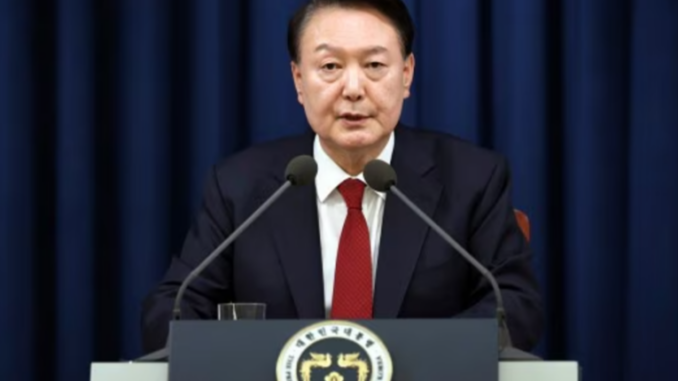
South Korean President Yoon Suk Yeol declared martial law overnight on December 3, accusing the opposition of paralysing the government with “anti-state activities“. A few hours later, following a resolution by the parliament to block it, he reversed the order and now faces an impeachment bid by the opposition.
During the short-lived emergency, a six-point decree brought all media outlets under the authority of martial law. The commander of the martial law in South Korea, Army General Park An-su, announced the introduction of control over all media, following his declaration of the suspension of the work of the parliament and political parties in the country.
The three major broadcasters—MBC, SBS, and KBS – officially halted their year-end award ceremonies, including the 2024 MBC Drama Awards, 2024 SBS Drama Awards, and 2024 KBS Drama Awards. KBS later decided to proceed with its scheduled year-end events following the lifting of martial law.
As the country’s major networks continued to cover the latest developments, MBC News showed footage of a military officer covering their live camera while covering the declaration of martial law.
According to the Korea Herald, in the tense first hours of martial law in South Korea, social media emerged as a lifeline for defiance, with politicians, journalists and ordinary citizens using it to document and disseminate real-time developments.
The New York Times said that instead of silencing South Korea’s media, the martial law declaration empowered them. Journalists criticized the president’s attempt to place the press under military control, hardened by years of challenges to press freedoms by the country’s political leaders.
A consortium of unions representing journalists and media industry workers condemned Mr. Yoon in a statement, calling his actions “anti-democratic,” “unconstitutional” and a denial of the “historical achievements of democracy and press freedom that the entire nation has fought for with blood over half a century.”
In a LinkedIn post, Chun Young-sun, managing editor of Korea JoongAng Daily, the English-language edition of daily newspaper JoongAng Ilbo, said: “At no point did we consider stopping or limiting coverage. The idea that we would do anything but continue reporting never really crossed our minds.”
The Committee to Protect Journalists told CNN’s @Liam_A_Reilly that “it would have been disastrous for press freedom if martial law had come into effect.” However South Korean journalists and citizens “demonstrated in remarkable fashion how to hold the line against the erosion of democracy. This can be a critical lesson for many societies that are seeing backsliding in democracy and press freedom, including in the West.”
